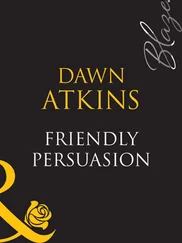But he seizes her little arm.
"If you love your mother so much, why are you waking me up this morning and not her?"
Her eyes open wide with astonished humiliation, and Ya'ari senses that his facetious rebuke went too far and the girl might begin a new round of weeping, and so, before she can bolt for her parents' closed bedroom door, he smiles at her forgivingly and points at her little brother, just now darting in from the children's room, his big head of hair disheveled and his eyes red, squinting balefully at the light as he climbs automatically into his high chair, which stands alongside the dining table.
"And here's your lovely little brother," he adds, trying to dampen her resentment, "who right after you stopped crying and went to sleep, began to cry and go wild. You remember, Nadi, how you went wild last night?"
The child nods.
"You remember how you kicked the door?"
The toddler glances at the door.
"What did the door do to you, that you kicked it like that?"
Nadi tries to think what the door did to him, but his sister spares him the trouble of answering.
"He always kicks the door after Imma leaves."
Ya'ari is relieved.
"Doesn't your foot hurt when you kick the door?"
Nadi soberly examines his bare foot.
"Yes," he whispers.
"So is kicking a good idea?"
The child has no answer, but the similarity to that other, faraway child still flickers in his face.
"So tell me now, kids," says Ya'ari, trying to get at the root of the mystery, "am I right that you cried and acted wild because you miss your Abba who is gone to the army?"
His suggestion seems reasonable enough to Neta, who despite everything wants to please her grandfather, but Nadi furrows his brow as if wondering whether this is the right answer, or if a deeper one lies behind it.
"So today, if you'll be good children, we'll take you to see your Abba in the army, and now let's eat some cornflakes."
And he pours the golden cereal into two colorful plastic bowls, adding milk according to each child's specific instructions.
4.
DANIELA TAKES A knife and fork and begins to eat the omelet, which is rosy with meat and vegetables, while studying the black concave basalt stone that sits between her plate and coffee cup. This is a meaningful stone, laden with history, placed there to serve as a useful accessory in clarifying for the courteous listener not only how one can tell when Australopithecus boisei —that "eating machine" — branched off the path, clearly leading from chimpanzees to Homo sapiens, but also whether the conventional assessment, which holds that this ape ran into an evolutionary dead end, is in fact correct.
Because when we discover fossils from animals or creatures of a humanoid nature — a wisdom tooth, wrist bone, a solitary finger — embedded in ancient rock, the excavators must be religiously careful also to preserve the evidence of their surroundings. Especially the encasing rock, because that's where invaluable information is hidden that only a geologist can decipher, not merely regarding the date, which is determined by radioactive analysis, but also the question of whether this rock is a medium that just happened to capture a fragment of the prehistoric creature or whether it might also be a tool dropped from its hand. For if the ancient being knew how to use this stone to crack open his nuts, he should be upgraded a rung on the human ladder. Here is where the paleoanthropologists are dependent upon the professional eye of the geologist, and two heads are better than one. Only geologists are trained to determine whether a simple stone, like this one on the table, which is about one million six hundred thousand years old, is carrying a fetus inside.
"A fetus?"
"A metaphorical fetus," explains the second geologist, Sifu Sumana, who till now has been quietly focused on eating the last of the giant omelet straight from the pan.
"In other words," Absalom Vilkazi elaborates, "a stone that has swallowed up another, more ancient, stone, whose erosion in a particular spot indicates that it was not just any stone but rather served as an implement, a tool in the hands of an Australopithecus boisei. Even if he himself was removed from the chain of evolution en route to the great destination of the creation of man, his spirit has nonetheless not disappeared; it continues to exist."
"His spirit?" she whispers.
"Perhaps you have forgotten, dear lady," the South African geologist says in a triumphant tone, "that two and a half million years ago our Africa was naturally joined to Asia and Europe. No sea or ocean separated them. And our Australopithecus boisei, whose traces we are seeking — this great African ape who despaired of his future on this continent — traveled from Africa to Europe and contributed the genes of the bulimic 'eating machine' to the civilization that developed there."
She looks closely into his eyes to see if there is a spark of humor.
"Now you are joking."
"Why?" the South African says innocently, even as mischievous laughter dances in his eyes.
His youth, flowering in the morning light, appeals to her. His English sounds natural and fluent, even though with his parents he probably speaks Zulu or Sesotho. Without a doubt, Daniela thinks, the elimination of apartheid has made this black man stand taller, and now, as he is confident in his identity, he is trying to challenge smug and prosperous Europe as an equal. And suddenly her heart aches over Moran, confined by the army, who doesn't understand that the conflict that poisons his homeland also diminishes his stature and undermines his identity, and in her train of thought Nofar and Efrat and Neta and Nadav are linked with Moran, and with beloved former students, and with the youngsters she'll return to after the Hanukkah vacation. Here they are in her mind's eye, sitting in the classroom decorated with posters and newspaper clippings, and among them she can make out the heartbreaking shadow of her nephew, who has descended from Jerusalem to the coast and joined her class to claim his place in the tears now clouding her gaze.
Absalom Vilkazi senses the unhappiness that suddenly silences the white lady, older than his own mother, and he is worried that she interprets the absurd migration of the prehistoric ape to Europe as an insult to her intelligence. And he therefore takes the liberty of gently laying a pacifying hand on her shoulder, as he does with his mother, and says, I was only joking, I apologize.
5.
"YOU'RE AT OUR house?" Moran is surprised when his father picks up the phone. "Did something happen?"
With businesslike conciseness Ya'ari informs him of his spontaneous volunteering for the post of babysitter and very considerately spares him the tale of his children's nighttime rampage.
"But which party did she go to?"
"I didn't ask and she didn't say. I only made sure she had her cell phone with her, because it always makes me nervous when she goes around without it."
"So why did you stay till the morning? You fell asleep and didn't realize she had come home, or she's still not back?"
"No, no, what's the matter with you? What a thought! She's here, but asleep. She got back after midnight and begged me not to drive home at night, then was so quick to open up the sofa that I gave in."
"You're also impressed by her aggressive pleading?"
"Why aggressive?"
"Not important."
"Why not important?"
"Forget it, Abba… it's not important… keep talking." Ya'ari senses his son's deep disappointment in himself, in his wife, maybe even in his father.
"What's going on, son?" he says softly.
He's sick of it. This inane punishment in the name of solidarity is getting on his nerves. Yes, at first he was a little glad for the enforced detachment from the world, from Efrat, the kids, the office, and, sure, a demanding father too. It was nice to be able to nap in midmorning, or before dinner, without accounting to anyone. But over the past two days his tranquillity has evaporated. Last night he kept tossing on his smelly army mattress, his mind loaded with nonsense, such as how to save his white queen from the black knights of that harebrained adjutant.
Читать дальше












